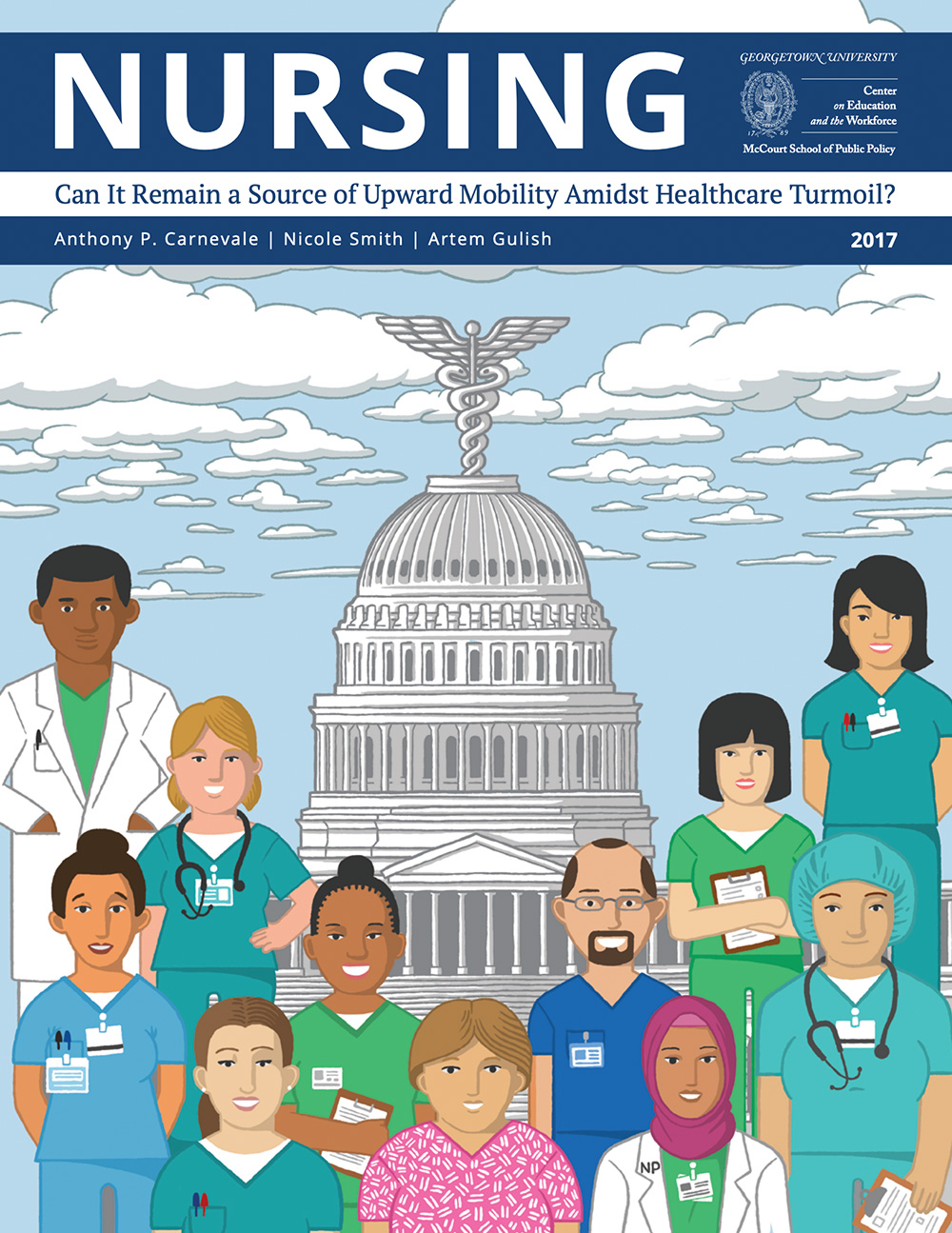Nursing
Can It Remain a Source of Upward Mobility Amidst Healthcare Turmoil?
The ongoing policy debate about the best way forward with healthcare reform has left out a major group of professionals central to making the system work—nurses. Nursing: Can It Remain a Source of Upward Mobility Amidst Healthcare Turmoil? finds that a college education is key to upward mobility in the profession. The report also reveals a lack of diversity among nurses remains a challenge.
Key Findings
Video
Watch our video about the nursing profession as a source of upward mobility amidst healthcare turmoil.
Resources
Our report finds that as the healthcare debate continues, 160,000 nursing jobs could be in jeopardy. The report also reveals that education is increasingly key to success in the nursing field.


